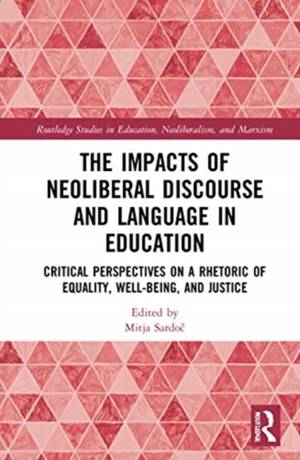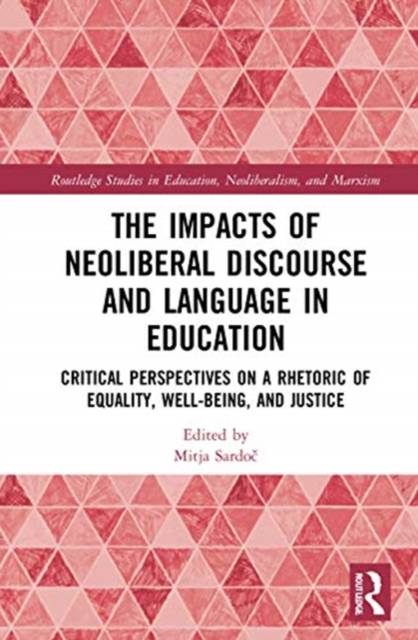
- Retrait gratuit dans votre magasin Club
- 7.000.000 titres dans notre catalogue
- Payer en toute sécurité
- Toujours un magasin près de chez vous
- Retrait gratuit dans votre magasin Club
- 7.000.0000 titres dans notre catalogue
- Payer en toute sécurité
- Toujours un magasin près de chez vous
The Impacts of Neoliberal Discourse and Language in Education
Critical Perspectives on a Rhetoric of Equality, Well-Being, and Justice
Description
This edited collection combines quantitative content and critical discourse analysis to reveal a shift in the rhetoric used as part of the neoliberal agenda in education. It does so by analysing, uncovering, and commenting on language as a central tool of education.
Focussing on vocabulary, metaphors, and slogans used in strategy documents, advertising, policy, and public discourse, the text illustrates how concepts such as justice, opportunity, well-being, talent, and disadvantage have been hijacked by educational institutes, governments, and universities. Showing how neoliberalism has changed discourses about education and educational policy, these chapters trace issues such as anti-intellectualism, commercialization, meritocracy, and an erasure of racial difference back to a contradictory growth in egalitarian rhetoric.
Given its global scope, this volume offers a timely intervention in the studies of neoliberalism and education by developing a holistic vision of how the language of neoliberalism has changed how we think about education. It will prove to be an essential resource for scholars and researchers working at the intersections of education, policymaking, and neoliberalism.
Spécifications
Parties prenantes
- Editeur:
Contenu
- Nombre de pages :
- 246
- Langue:
- Anglais
- Collection :
Caractéristiques
- EAN:
- 9780367415471
- Date de parution :
- 22-03-21
- Format:
- Livre relié
- Format numérique:
- Genaaid
- Dimensions :
- 152 mm x 231 mm
- Poids :
- 453 g

Les avis
Nous publions uniquement les avis qui respectent les conditions requises. Consultez nos conditions pour les avis.





